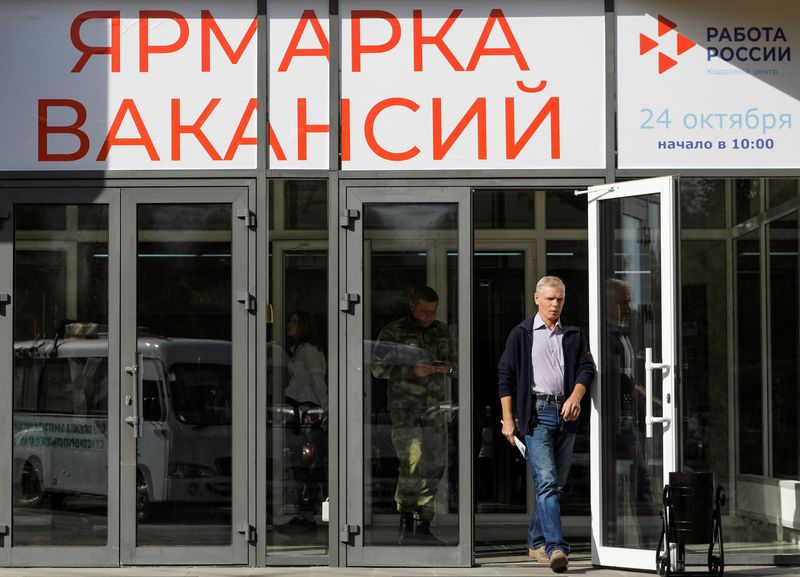(Reuters) - Russian unemployment hit a new record low in June and real wages rose by 10.5% year on year in further evidence of a tight labour market, data released on Wednesday showed.
The jobless rate fell to 3.0% of the economically active population from 3.1% a month earlier. The growth in real wages was slower than the May figure of 13.3% but still well above analysts' forecast of 8.3%.
Labour shortages have been aggravated by Russia's military mobilisation last year and the fact that hundreds of thousands of people have left the country since the start of the war with Ukraine, particularly affecting areas such as IT.
Defence companies are working around the clock and experts say the military sector has drawn workers away from other parts of the economy, with staff shortages being felt in light industry, chemicals, food and other areas.
In better news for the central bank, inflation slowed to 0.03% from 0.09% in the week to Aug. 28.
Inflation in Russia began to pick up in June as last year's high base effect wore off, when prices rose by double digits after Moscow launched what it calls its "special military operation" in Ukraine. Rouble weakness has also pushed up the price of imported goods.
President Vladimir Putin has addressed the topic of growing inflationary risks twice in the last month, telling the government and central bank to keep the situation under control.

The bank has raised its key rate twice since the end of July, by a total of 450 basis points, in an attempt to stabilise the rouble and curb inflation, promising to continue the cycle of tightening monetary policy if necessary.
In its latest forecast, it estimated inflation in 2023 in the range of 5.0-6.5% compared with 11.9% last year, and said it was expected to return to its 4% target in 2024.